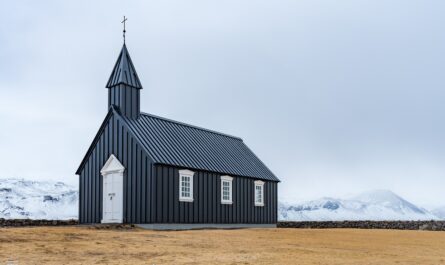Science has had an explosion of findings when it comes to sleep recently. We have good data on what happens when we’re sleep deprived or get sufficient sleep. More recently, we discovered that a sanitation process happens in the brain while we sleep. This has allowed science to link sleep with cognitive functioning in later life.
God effortlessly does a billion purposes with every event. For example, God uses sleep to clean waste products from the brain. One of the first things God “did” after creating the universe was to rest (Gen 2:2), and it seems like science is affirming that God was wise in showing us the preeminence of resting through sleep. This is all to say that I suspect science will continue to discover other beneficial things that come from sleep because God is always doing a billion things at once.
Beyond the physical, however, the Bible suggests there are other reasons God created sleep. Why would God create us to be unconscious and prone (i.e., laying flat) for a third of our lives? Why have we never been able to effectively reduce our need for sleep by will or by science?
Humility
I first heard this argument from John Piper in one of his sermons. Unfortunately, I cannot recall where I heard it, but I will update this post if I find it. Piper suggests that man spends a third of his life prone and unconscious to remind us that we are not God. In 1 Kings 18:27, Elijah famously mocks the Baal priests that their gods are asleep or on the toilet. By contrast, the God of Israel neither slumbers nor sleeps (Ps. 121:4). The LORD made Ezekiel (Ez. 33:7) a watchman because people sleep and need someone to watch over them at night. Interestingly, Ezekiel was not necessarily on the city wall watching for enemy invaders but a watchman in the supernatural realm. Who was Ezekiel watching for? He was watching for the very One who had put him in that post: the LORD. God describes Himself like a thief in the night (1 Thess. 5:2). Ezekiel was a watchman for a sleeping Israel who had forsaken and replaced the LORD whose patience was coming to an end.
God does not sleep, and people cannot help but sleep. After one night of poor sleep, people are at limited capacity. Consider how society treats new parents who manage nighttime feedings of infants. Most cultures provide new parents leave from work, and some up to a year, partially because we are useless without sleep. We have to spend a third of our life prone and unconscious not only to live out our full three-score-and-ten but to make the other two-thirds of our lives we are awake bearable. God neither slumbers nor sleeps in both the physical and non-physical realm. There are many reasons we will never usurp God, and sleep is a daily reminder of the practicalities of that.
Death
The Bible, and specifically Jesus, used the terms sleep and death interchangeably all the time (ex. Jn. 11:11). This is probably not a mistake or flippant. Indeed, falling asleep at night is very similar to dying. Sleep comes upon us irresistibly and takes us to a state of unconsciousness. Interestingly, dying is something that almost everyone will experience (Enoch and Elijah did not die, and some will be alive when Jesus returns [1 Thes. 4:16]), but no one really knows what death is like. We have no context for dying or being dead. This is probably why so many people fear death: it is inevitable yet seemingly totally unknowable. Could God have given us sleep to help us understand the act of dying?
The Bible gives us many different examples of realities that we struggle to understand. They can be called “shadows” of the real thing, based on Hebrews 8:5, where priests serve as “a copy and shadow of the heavenly things,” namely, Jesus, the High Priest. Here’s a short list:
- A mustard seed is a shadow of the Kingdom of God (Matt. 13:31).
- Marriage is a shadow of the relationship between Christ and the Church (Eph. 5:32).
- Parenting is a shadow of God’s thoughts of and affections for us (Matt. 7:9).
- Adoption is a shadow of our grafting into the family of God (Rom. 8:23).
- Water baptism is a shadow of the death of Christ (Rom. 6:3).
- God allowed Moses to see His shadow (God’s backside, Ex. 33:23) but not His face (God’s fullness).
Paul writes, “For now we see in a mirror dimly, but then face to face. Now I know in part; then I shall know fully, even as I have been fully known.” (1 Cor. 13:12). For now, we know in part. There are clearly realities that we either will not or cannot (Is. 6:5) safely experience until we are with God in our glorified bodies, but God clearly gives us glimpses or shadows of them now. Perhaps sleep is a shadow of death.
Why would God do it this way? Are men benefitted by being humbled? Consider the first sin and its outcome (Gen. 3:5). If you imagined death was actually an activity you engage in every night, would you be as afraid of or upset by it? For the Christian, death is the final step before everlasting joy with God. “Fear not, little flock, for it is your Father’s good pleasure to give you the kingdom (Luke 12:32).” God not only wants to give us good things, but He also wants us to fear Him only. These are two things I think the Bible suggests God is doing with sleep, but there are likely still a billion more.


